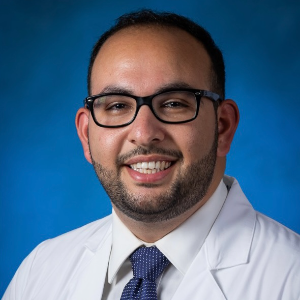Title : ChatGPT – An artificial intelligence based educational resource for patients in cardiology
Abstract:
Background: There are a multitude of barriers that can lead to poor cardiac outcomes in the United States, especially those faced by underrepresented and minority populations. The development of new advancements in the field of Artificial Intelligence has become a primary tool in the latest efforts to expand medical education to a larger audience than could have ever been done before. ChatGPT, a novel Large Language Model (LLM) developed by OpenAI, has recently emerged as a promising tool given its ability to answer questions, give personalized responses, and solve complex problems, all while simulating human conversation. In this paper, we examine the role that ChatGPT can have as an educational resource for patients receiving cardiovascular care.
Methods: To investigate the potential applications of ChatGPT, we conducted a literature review to examine the current state of knowledge regarding the program's capabilities and clinical uses. We then posed common cardiac patient questions to ChatGPT and documented the answers provided by the program. All queries were inputted into GPT-3.5, the latest free-to-use version of ChatGPT.
Results: ChatGPT has many benefits that have the potential to improve education delivery to cardiology patients. This modality is free-to-use and is available in over ten languages, making it easily accessible to all patients. The software can also help answer questions related to recent diagnoses, medication uses, and post-operative instructions. ChatGPT can also guide patients on prevention and lifestyle modifications, showing its usefulness in the preventative realm of cardiovascular medicine as well. Despite these benefits, ChatGPT, like any technology, carries certain risks and limitations that must be addressed. In addition to security and privacy concerns, the software carries a risk of spreading misinformation, a problem exacerbated by system-falsified citations. The lack of input boundaries also makes it difficult to standardize responses.
Conclusion: The aim of this paper was to detail the use of ChatGPT as an educational tool for patients receiving cardiovascular care. Despite the software’s limitations, ChatGPT shows promise to advance patient education forward. Future efforts must be focused on addressing these inconsistencies, and we believe that healthcare professionals should be involved in future software developments to ensure the quality of information given to patients.
Audience Take Away Notes
With this presentation, the authors aim to inform the medical community about a novel chatbot which has the potential to impact patient education. Our goal is to describe the benefits of the software, as well as spread awareness of its current limitations. Because of the novelty and lack of literature on ChatGPT, this presentation can get physicians and other healthcare providers well acquainted with the software to best educate their patients going forward.



